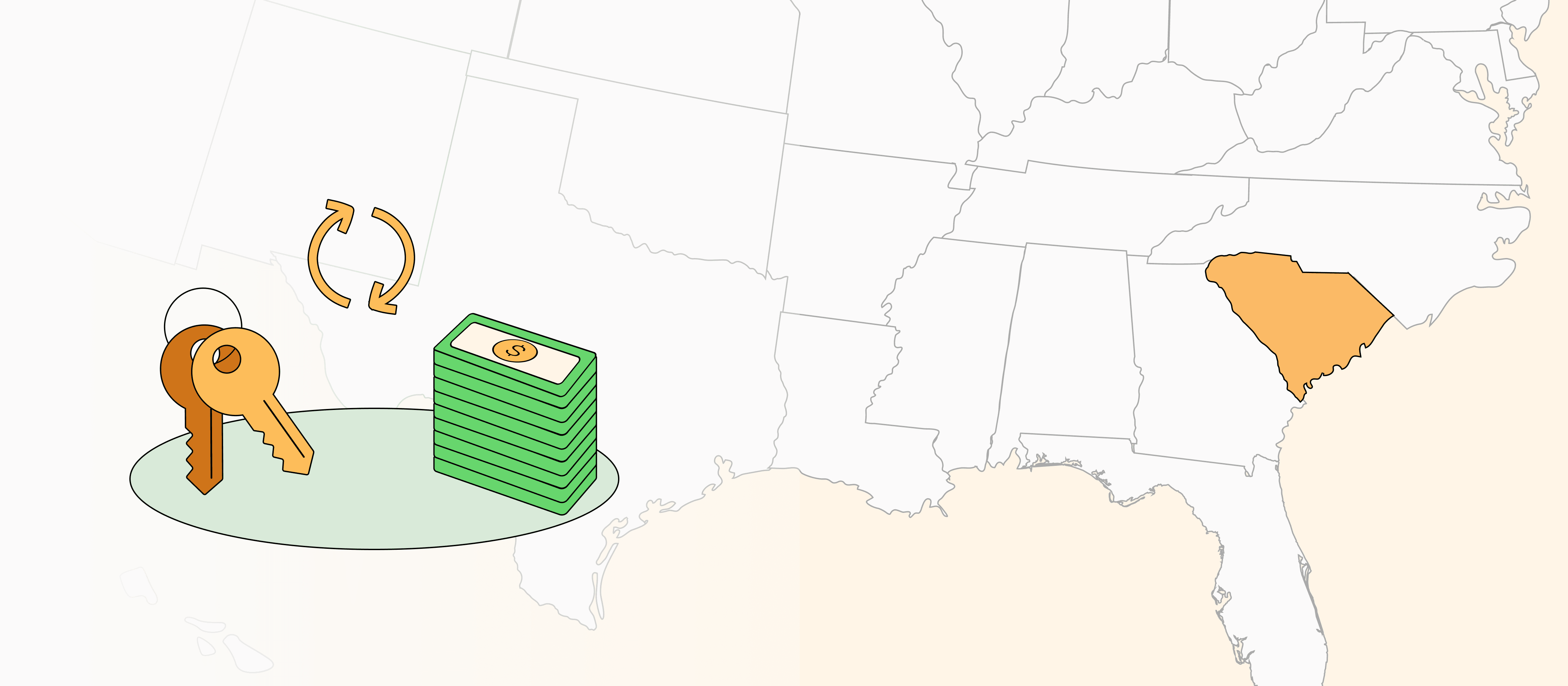| Quick Facts | Answer |
| Maximum / Limit | No Limit |
| Receipt Requirement | None |
| Inventory Requirement | None |
| Interest Requirement | None |
To learn about laws on security deposit returns in South Carolina, click here.
Some cities and counties may have regulations which are more restrictive than those presented here. Always check local laws.
Maximum Security Deposit Allowed in South Carolina
There is no limit on how much a landlord can collect for a security deposit in South Carolina. While other states impose a maximum security deposit limit, such as one month’s rent, South Carolina does not.
Can Landlords Charge an Additional Pet Deposit in South Carolina?
Yes, landlords can collect an additional pet deposit in South Carolina, except for service dogs and emotional support animals.
How Much Rent Can a Landlord Collect Upfront in South Carolina?
There is no limit on the amount of rent that can be collected upfront in South Carolina. Many states have a limit on the amount of rent that can be collected at once, but South Carolina does not.
Security Deposit Collections in South Carolina
In South Carolina, there are no additional requirements for landlords that collect a security deposit, except when landlords collect security deposits for 5 or more adjacent rental units and the amount collected is not identical for each unit.
In that case, landlords must disclose to those tenants how security deposits are calculated. The disclosure can be included in the lease agreement, in a separate statement, posted where rent is paid, or posted in another conspicuous place, like the leasing office.
Do Landlords Have To Provide a Receipt for the Security Deposit in South Carolina?
Landlords are not required to provide a receipt for the security deposit in South Carolina, although some states like Washington require a receipt.
What Obligations Do Landlords Have To Establish the Condition at Move-in in South Carolina?
South Carolina law does not require landlords to document or establish the property’s condition at move-in. While other states legally require a written inventory of damages to be completed when collecting a security deposit, South Carolina does not.
Security Deposit Holdings in South Carolina
South Carolina law does not require landlords to hold security deposits separate from other funds.
Are Tenants Entitled to Interest on Their Security Deposit in South Carolina?
South Carolina law does not require landlords to provide interest on held security deposits.
How Are Security Deposits Accounted for in South Carolina?
Security deposits are not considered taxable income when they are collected.
What Happens to a Security Deposit When the Property is Sold in South Carolina?
When a property is sold in South Carolina, the original landlord remains liable for the return of the security deposit until both of the following occur:
- The tenant is notified in writing of the sale and transfer
- The security deposit is transferred to the new owner
Sources
- 1 S.C. Code § 27-40-410(c)
-
If a landlord (1) rents more than four adjoining dwelling units on the premises, and (2) imposes different standards for calculating security/rental deposits required of different tenants on the premises, then, prior to the consummation of the rental agreement, the landlord shall either post in a conspicuous place on the premises, or at the place at which rental is paid a statement clearly indicating the standards by which such security/rental deposits are calculated, or shall provide each prospective tenant with a statement setting forth the standards. If a landlord fails to comply with this subsection as to a tenant, the difference between the security/rental deposit required of the tenant and the lowest security/rental deposit required of any other tenant of a comparable dwelling unit on the premises is not subject to deductions for damages by reason of the tenant’s noncompliance with Section 27-40-510.
Source Link - 2 S.C. Code § 27-40-450
-
(a) Unless otherwise agreed, a landlord who conveys the premises that include a dwelling unit subject to a rental agreement in a good faith sale to a bona fide purchaser is relieved of liability under the rental agreement and this chapter as to events occurring after written notice to the tenant of the conveyance. However, he remains liable to the tenant for security recoverable by the tenant under Section 27-40-410, unless the security deposit is transferred from the seller to the purchaser and the tenant is notified in writing a reasonable time after the transaction in which case the purchaser is liable under Section 27-40-410.
(b) Unless otherwise agreed, a manager of the premises that includes a dwelling unit is relieved of liability under the rental agreement and this chapter as to events occurring after written notice to the tenant of the termination of his management.
Source Link

